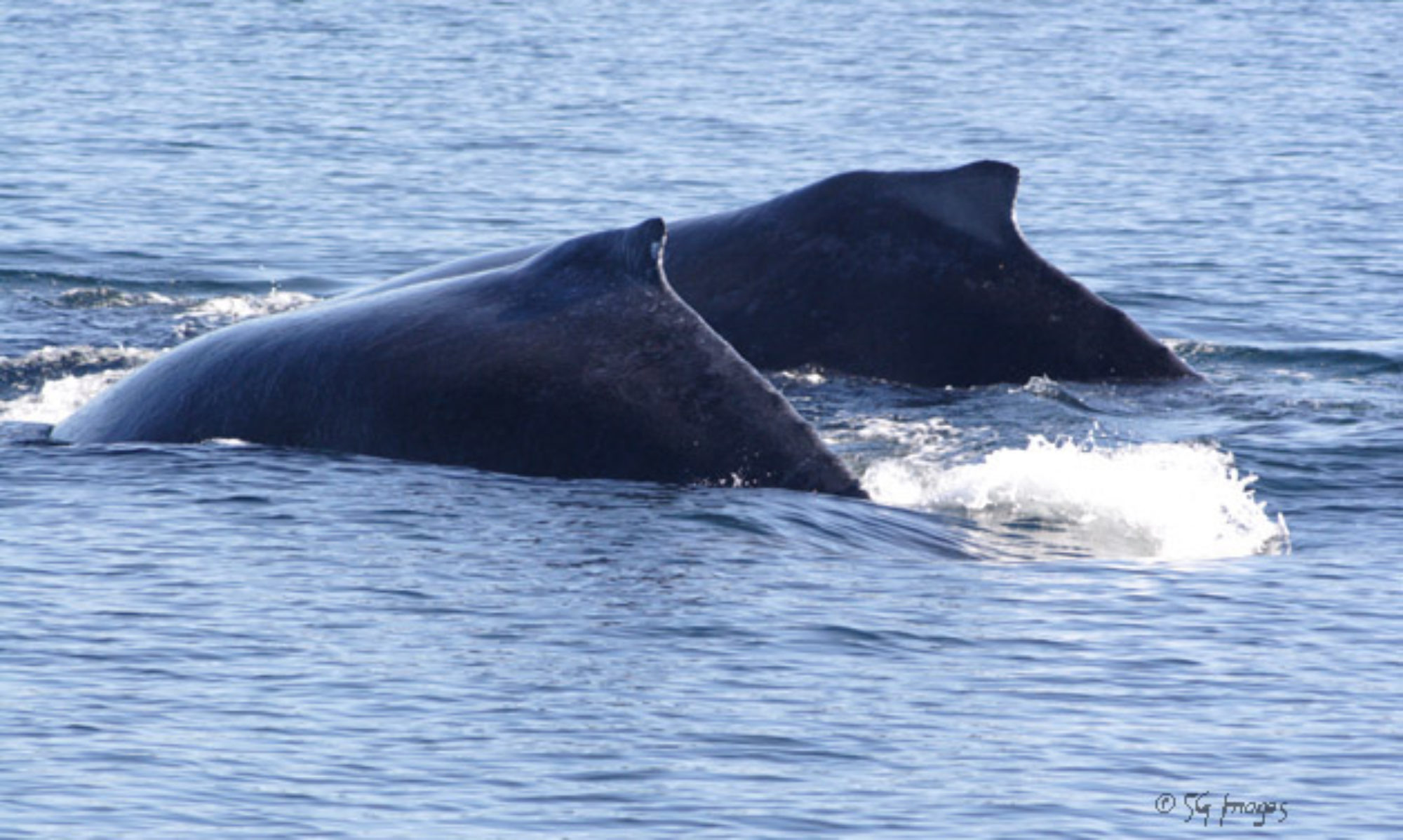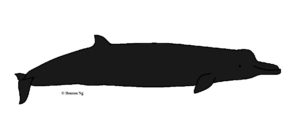Baird’s Beaked Whale
Baird’s Beaked whale, Berardius bairdii, is one of three species in the genus Berardius. These beaked whales are characterized by the lack of all but one or two sets of lower teeth, called ‘battle teeth’. The beaked whales are one of the most mysterious and least studied of all the Cetacean families. Baird’s Beaked whale is found in the North Pacific Ocean, the Sea of Japan, and the Southern part of the Sea of Okhotsk. The population is estimated at around 30,000 individuals, mainly found at sea over steep cliffs at the edge of the continental shelf, but are known to migrate to oceanic islands.
Baird’s Beaked whale has a large but slender body with an elongated beak and a pronounced melon. The lower jaw is longer than the upper jaw, allowing the so-called battle teeth to be used much the same way as tusks in elephants in male-to-male confrontation over mates. This results in scarring often seen on the brown-grey body. The flippers are small, rounded, and set towards the front of the body. Adult members of this species are generally in the range of 12-13 m (39-43 ft) in length, weighing up to 14,000kg (31,000 lb).
Relatively little is known about the pod structure of Baird’s Beaked whales, due to the extent of whaling. However it has primarily been found travelling in groups of 2-9 individuals, but has also been seen travelling in schools of up to 30. They normally dive for 11-30 minutes, with individuals known to hold their breath for an hour or longer. Generally, they feed at depths between 800 and 1,200 m, on anything from pelagic fish and crustaceans, to cephalopods and sea cucumbers. They generally stay on the surface for up to 14 minutes at a time, blowing continuously, making it easy to identify. Baird’s Beaked whales are a long-lived species, with males often reaching up to 84 years, and females commonly over 60.

Baird’s Beaked Whale – Berardius bairdii specifics:
Length:
12-13 m (39-43 ft)
Weight:
14,000 kg (31,000 lb)
Colour:
Grey-brown
Features:
Large melon
Protruding battle teeth from the lower jaw
Significant scarring on the body
Triangular dorsal fin set two-thirds of the body down the back
Click on Cetacean Species in list below:


